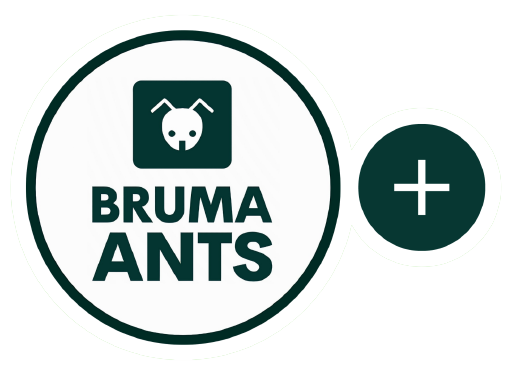Hi guys! I hope you’re doing well!
Today we’re going to talk about hibernation: What is it? Why do ants need hibernation? Should I hibernate my ants? These are some of the questions that we’re gonna answer in this guide!
Let’s get started!
What Is Hibernation?
Let’s start from the basics: what exactly is hibernation?
The scientific literature defines hibernation as a state of minimal activity and metabolic depression, undergone by some animal species. Hibernation is a seasonal heterothermy characterized by low body temperature, slow breathing, heart rate, and low metabolic rate. It most commonly occurs during winter months.
I think that this definition perfectly summarizes the concept. In other words, hibernation is nothing but a biological phase in which the metabolism of the animal slows down drastically, keeping active only the functions needed to stay alive.
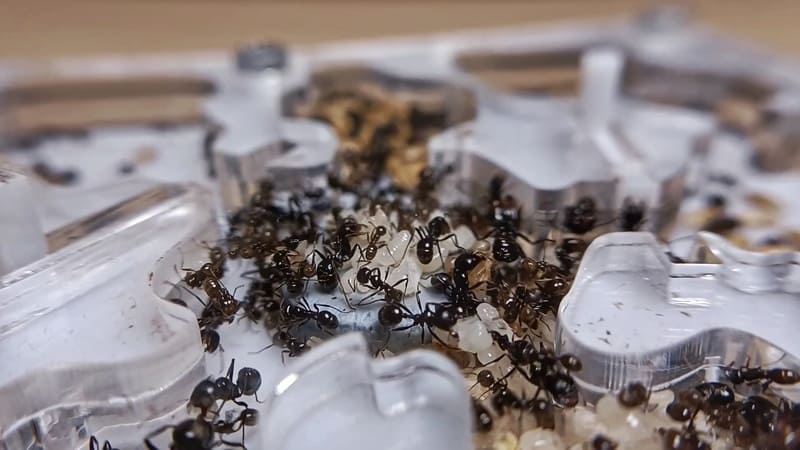
In 90% of the species, hibernation typically occurs during the winter months. The list of species that go into hibernation is really long, and includes animals like bears, primates, mouses, squirrels, some species of birds, and, as you can imagine, ants!
Now that we know what hibernation is, let’s discuss the reason behind this important biological phase.
Why Do Ants Hibernate?
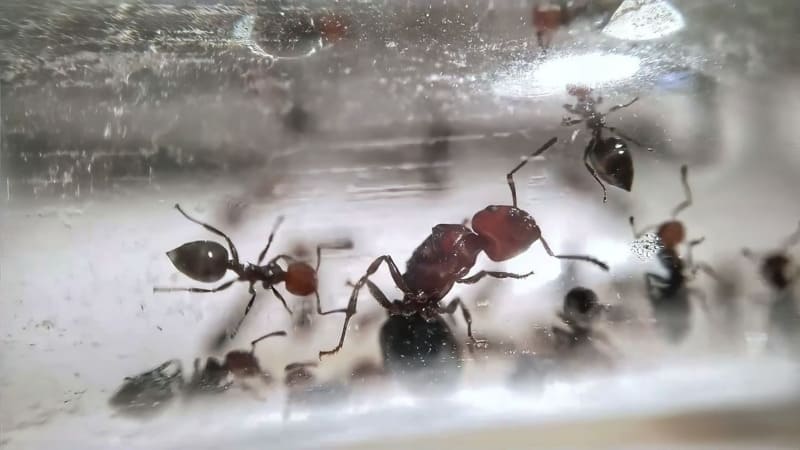

As we’ve seen before, ants, like many other animal species, like to hibernate during the winter months. Now you may be wondering: but why do ants hibernate? Why they don’t just continue with their life all year long?
These are very interesting questions, to which there are lots of answers. The two main ones regard the environment, and the biology of the animal.
The Climate
Let’s start with the climate. Let’s face it! Life in winter is a lot harder than in any other season! The cold temperature, the harsh weather, and the longer nights, make basic activities like searching for food and water extremely difficult.
And if we also add the snow, the game becomes almost unplayable! That’s one of the main factors that encourage an animal to pause for the winter months and wait for the spring of the next year to resume the usual life!
The Biology Of Ants
But there’s another very important aspect to consider: the biology of ants!
As you may already know, ants are cold-blooded animals. This means that their body is not capable of self-heating, and that their metabolism is immensely influenced by the external climate.
If you, just like me, are truly fascinated by these tiny smart animals and wanna learn more about them, you cannot miss this article! In this one, I will blow your mind with 10 amazing and extremely interesting facts about ants!
In most parts of the world, during the winter months the temperature decreases massively, forcing the metabolism of the ants to slow dramatically! Think about it: in some countries the temperatures easily reach sub-zero values! How can a cold-blooded animal live there?
For this reason, ants have no choice. They need to find a safe and comfortable place where to pass the winter months, maybe in the ground where the temperature is a bit higher, and patiently wait for the climate to get better!
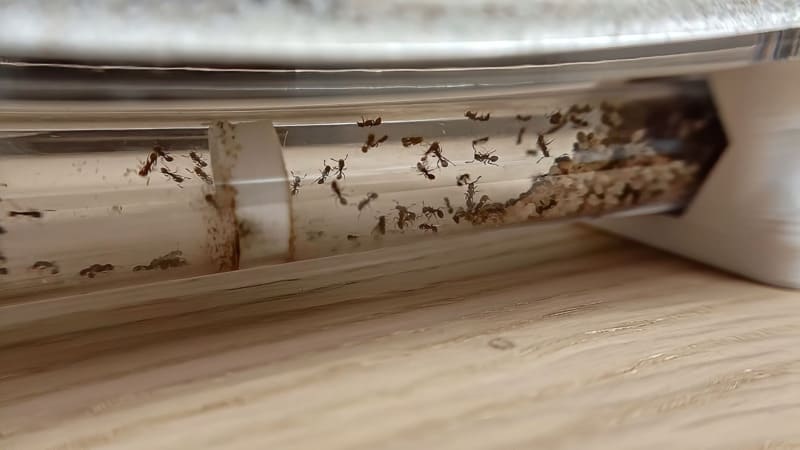

In this calm period, the colony and the queen can finally take some rest and recharge their batteries! The queen stops to lay eggs, and the development of the various stages of the brood comes to a halt, and will remain like that until the start of the next season!
So, we now know what hibernation is and why ants need this important phase. One question might be popping into our mind right now: but what if I don’t hibernate my ants? After all, my house is heated and the temperature does not drop to extremely low levels, right?
Let’s talk about it!
Do Ants Really Need Hibernation?
That’s a very interesting and difficult question to answer. In the end, it all comes down to what we mean by “need”. Scientists, myrmecologists, and ant keepers from all over the world have done plenty of experiments regarding this very issue, and the results point to very similar conclusions.
They have found out that for the majority of ant species, hibernation is not essential to the life of the colony. This means that the queen and the colony can survive even if deprived of the low-temperature period.
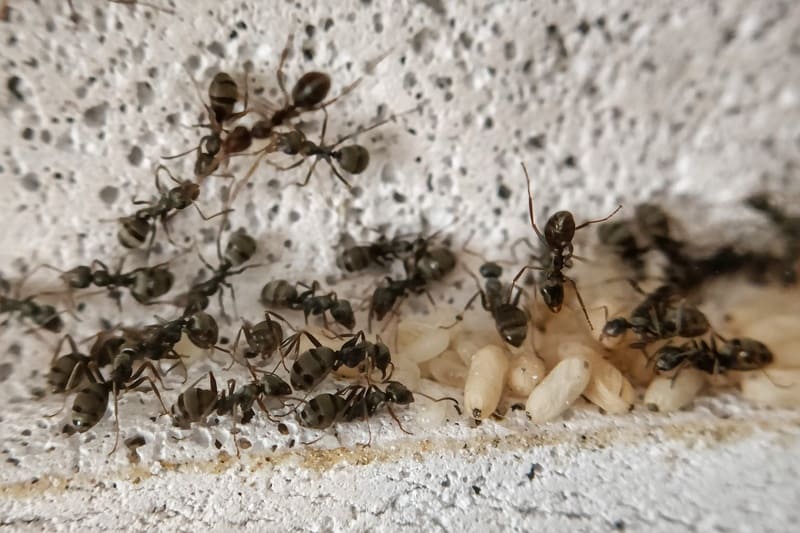

One interesting fact they’ve noticed is that, even if the temperature remains the same, the queen tends to slow down the production of the eggs, and the workers start to go out foraging a lot less often. It is almost like the ants have an internal clock!
Having said that, there are some important disadvantages to skipping this important phase. The myrmecologists have found out that the lifespan of the queen, and with that, the lifespan of the entire ant colony, reduces drastically for every year passed without a proper hibernation.
If you think about it, this makes perfect sense. Just imagine for a moment that a queen ant has a fixed amount of, let’s called it, life energy. If we use this life energy for only 9 months a year, we can with no doubt live a lot longer than if we would use the energy for the entire 12 months!
I know, this is a way too simple explanation for a so complex concept like hibernation, but I think it makes it a lot easier to understand the reasons behind the drop in lifespan!
If you’re a beginner ant keeper and this is your first hibernation, I would suggest you take a look at this other guide! In this one, I list the 5 most common mistakes that beginner ant keepers make when they first start approaching this amazing hobby!
At this point of the article, you may be wondering: BRUMA, but I know some species of ants that do not hibernate, how about those?
Exactly! Not every species of ant hibernate! In fact, there are lots of species that are active all year long! Some of the species native to exotic regions, for example, do not pass this biological phase.
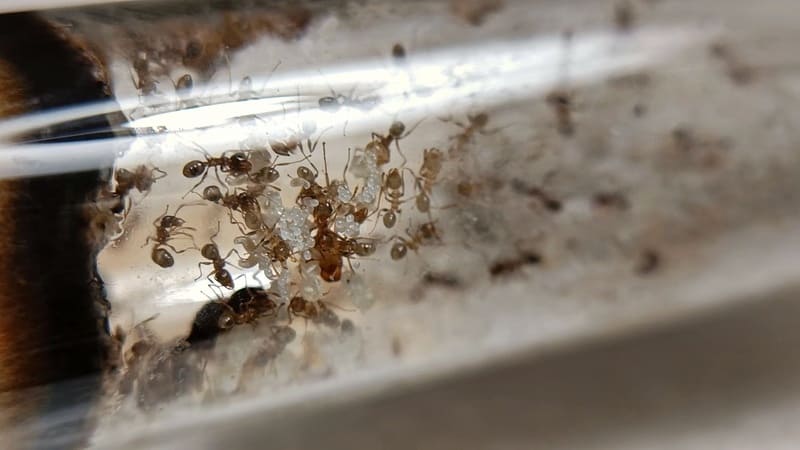

They just slow down a bit their activities and their metabolism, but do not officially enter a proper hibernation phase! These particular species are able to remain active all year due to the different weather characteristics of the regions in which they live, a lot warmer and more comfortable!
Now it’s finally time to talk about some more practical stuff! Let’s jump to the next chapter!
How Do I Hibernate My Ants?
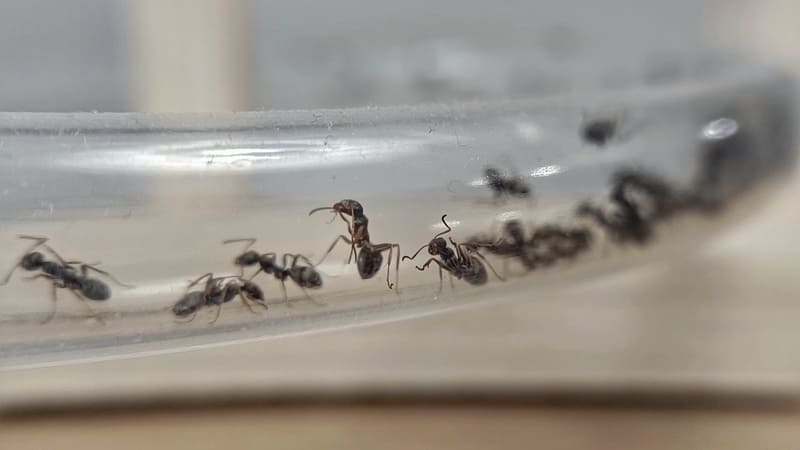

When it comes to hibernating your ant colonies, you have multiple choices. Let’s examine them!
The first and easier option to put your queens or ant colonies into hibernation, is to place them in a room that tends to replicate the outside temperature. With this clever solution, you don’t have to worry too much about them, as the room temperature perfectly replicates their natural environment!
The Garage
One great place that you can use for this scope is your garage. Garages are not usually heated, and are detached from the main living area of the house.
Using this place as your hibernation zone gives you two great advantages: the low and constant temperature, and the fact that the ants will not be disturbed too much!
The Fridge
Now let’s talk about the second option that you have when it comes to hibernation. If you don’t have a garage or if you don’t like the idea of leaving your ants at the mercy of the outside temperature, you can use a normal fridge!
You can set the temperature of the fridge to the hibernation temperature of your ant species, place the colony inside, and wait patiently for the spring to arrive! Nothing easier! No need to worry if the outside temperature gets too low or too high!
But what if I have lots of colonies, and all of them are inside test tube setups? Is there a way to easily store the test tubes together without the risk of making them roll over or bump into each other? Of course!
In this tutorial, I explain in detail how you can easily build a test tube holder just by using some recycled cardboard! This is the perfect way to organize and store your precious ant colonies on a budget!
Perfect! Now that we know how to hibernate our ants, let’s discuss a bit about the timing!
When Do I Need To Put My Ants Into Hibernation?
One of the first things you have to do after finding a queen ant, is to go online and do some research about her! You need to find out to what species she belongs, her eating habits, the right temperature and humidity, and, of course, if and when she hibernates!
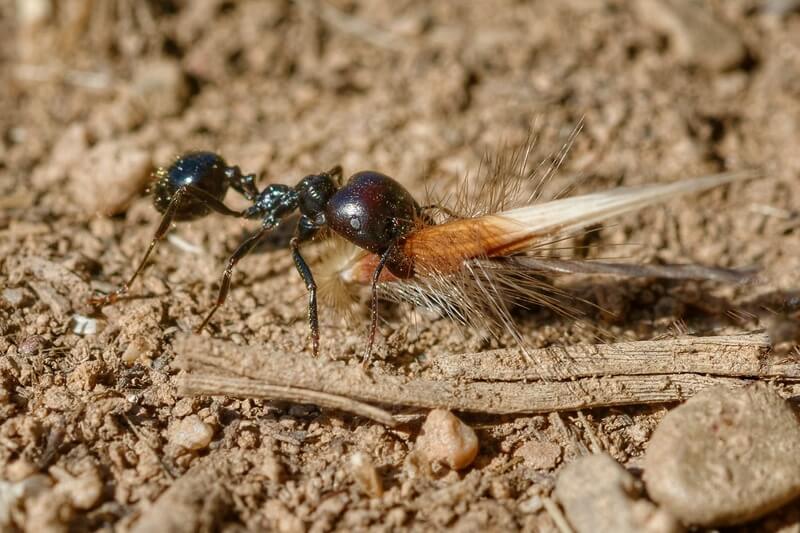

Once you have this information, you can plan the hibernation phase accordingly, using one of the two methods that I listed before!
Remember, make sure to follow their natural cycle! If done it properly, you can successfully maximize the lifespan of the queen, and with that, the lifespan of your personal ant empire!
Fantastic! Now we know everything we need to perfectly hibernate our beloved ants!
I really hope you liked this guide, and I also hope you learned something new!
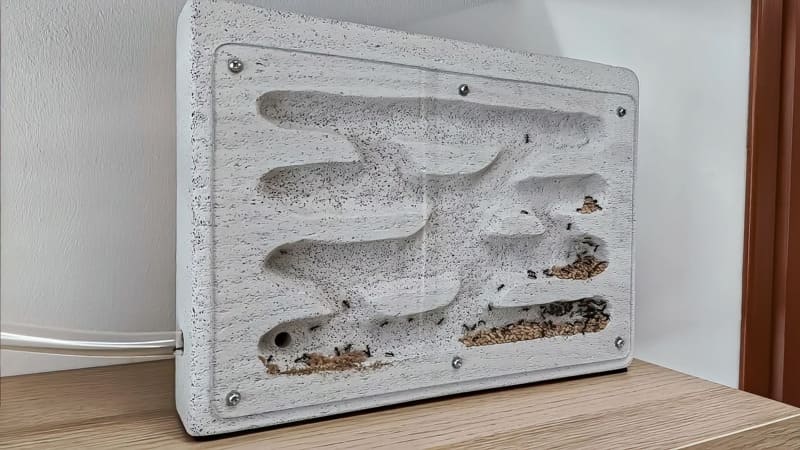

If you like this type of ant keeping guide and also love to build things on your own, I would strongly suggest you check out this other one! In this one, I explain how to make a D.I.Y. Ytong nest starting from a single block!
Real-world impact!
Thanks to the BRUMA Ants Plus subscribers and our partner Ecologi we are planting lots of trees all around the world! Click on the Ecologi logo to see the real-world impact of this amazing community!
Join our Discord!


